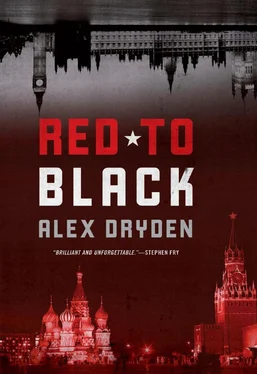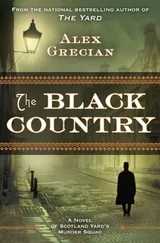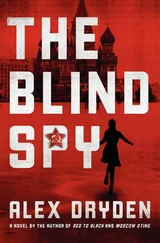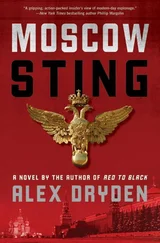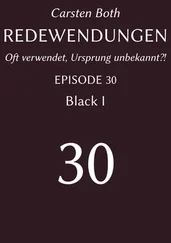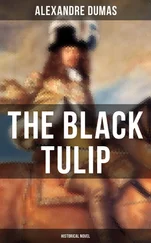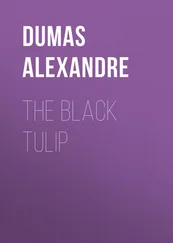We had the pleasing illusion of being self-sufficient when we were at Barvikha, and that illusion was what Nana trusted. She guarded this illusion closely in her jam making and mushroom picking. We lived in a country which was a concrete box of illusions within illusions, topped with barbed wire to protect us from reality, and no one knew that better than us.
My father and his colleagues in the SVR were the only ones in a position to see the truth, the disparity, and could compare us with the outside world.
Nana, like everyone else, had to find the source of her power elsewhere. She found it in the making of jam and cakes and bread, or foraging for mushrooms and berries.
‘The Party doesn’t control the wild things,’ she said.
‘What about the guard dogs?’ I asked her in childish innocence.
‘They’re not wild,’ she explained. ‘They’ve been brainwashed too.’
I was confused by this. Three times a week Nana scrubbed my body mercilessly, but the prospect of washing my brain too conjured up many nightmares later.
‘What about your cat then?’ I persisted.
‘She answers to no one,’ Nana replied.
And neither did Nana. She answered to no one. To me, she was as real as the bark of a tree, as real as stone, as rainwater. She was of the wild herself.
In 1976, when I was seven, I asked Nana why our leaders always looked so cross. The reason, she said, was that no matter how hard they tried they could never completely take away everyone’s power. The impossible task naturally made them very angry. The biggest, most ruthless secret service in the world couldn’t control the inner lives of its own people.
‘Tyrants become tyrants by force of will,’ she said. ‘By imposing their power on others. But that’s the easy bit. They can never be truly powerful, however, unless they also take away every last morsel of power from other people. And that, as far as I know, is not possible until death.’ And she laughed with triumph. ‘But then they lose that power anyway to God!’
Nana, like many others, didn’t accept the illusions handed down by the state, by my grandfather Viktor, the economic adviser, or my father. Nana chose her own illusions. And she made her chosen illusion her own reality, her power, and in this she was free. It was a lesson I haven’t properly understood until now.
In 1976, I went to a school in Moscow reserved for the elite, but, thankfully, not one of the schools attended only by children of KGB officers and which my father considered to be academically slothful and run solely on the basis of privilege. I was lucky in this.
With true Soviet panache, the school was called Number 47. I met a more interesting mixture of people there, many from our apartment block, though I was aware even at that age that I was different, one of only two pupils in the school who was the child of a senior SVR officer. The headmaster was always deferential and I knew of his instruction to other teachers to ‘go easy’ on me, ‘to be careful’, to treat me with kid gloves.
I was supposed to make friends with Vladimir, a boy two years older than me, whose father was also in the SVR, but I disobeyed my father’s instructions and formed a crush on Misha who was in the same class as me, and the same age. I wrote Misha a letter.
‘Dear Misha, I think you are wonderful and I am going to marry you. I am not going to let Eugenia marry you. I hope you still love me. Who are you going to marry? With love from Anna.’
‘God, you were bossy,’ Finn said when he saw the letter one day as he leafed through my scrapbook that Nana had kept. Afraid of my father, I had never sent it.
Misha had learned to be afraid of me because his parents were afraid of my father. I’d go to his house for tea sometimes, or to play games, and his parents’ behaviour towards me was a combination of hope and dread. So I learned that I was apart. As an only child, the solitude of specialness was greatly reinforced by my father’s position among the secret elite.
In very different circumstances to mine this is what Finn, too, learned as a child.
It was the summer holidays that, oddly, I dreaded most. I went to see my parents in Damascus and was bored in the confinement of the Soviet compound. We called it the ‘colony’ and referred to our homes as ‘white houses’, a typically white, racist Russian expression; in Russia anyone with even a faintly dusky skin-which included everyone in the Soviet southern republics-was considered inferior. But I yearned to be outside the compound, to meet people other than embassy and KGB children with whom I played endless games of table tennis. I felt more like I was a prisoner in our own privileged compound than one of the elite.
It was during one of these summer holidays, when I was fourteen, that I lost my virginity to a teacher from my school in Moscow who my father had paid to come to Damascus to give me private tuition. The teacher and I flew first class from Moscow and, as he was a nervous flyer, he bought a bottle of vodka. He recounted a number of near air crashes he’d been in, then drank three-quarters of the vodka and fell asleep for the rest of the flight. I drank the rest and was sick.
A week later, our chambermaid saw him as he emerged from the laundry room of our house in Damascus. He was reeking of vodka, she said, despite not being airborne. I had fallen asleep in the unwashed clothes, also reeking of vodka.
Though both of us denied everything, he was sent home, lost his job and disappeared. If I am honest, it was I who had seduced him and I tried to blot his fate from my mind.
That summer, in an effort to improve my holiday moods, I was given a Persian kitten by one of my father’s diplomatic friends in Damascus and he became my main companion. I called him Genghiz and played with him all the time, eventually taking him back to Moscow. He was a cat with magical powers. He would patrol the neighbourhood around Leninsky Avenue frightening the stray dogs and making the militia’s guard dogs whimper. At Barvikha he took over the forest and cowed the KGB guard dogs there too, but he was the best of friends with Nana’s Siberian cat whom he protected.
I was eleven when I first learned my father was a spy. He told me why our lives were different from those of the others on embassy territory. Even the ambassador, I’d noticed, treated my father with unnatural respect. And my father was always working.
‘The SVR are the workhorses of the Soviet state,’ he told me, as though reading from some thirties manual of appropriate slogans. ‘Diplomats are there thanks only to their Party connections.’
With little attempt to disguise it, he despised my mother’s father Viktor for his diplomatic status.
But to me his remark was a terrible insight into who ruled in Russia and who still, effectively, rules today. Nobody ever mentioned the people at all then, except as an ideological abstract. Nor do they now. But wasn’t it our people who worked in the factories and fields who were the workhorses of the state? No, they were just glue. Try asking a Russian MP today what the people would like and you’ll be met by the blankest stare of incomprehension. It is not even cynicism, in my opinion. The people are actually invisible.
‘The people are the grease in the machine,’ my father said once.
Russian elitism remains unchanged from the Middle Ages and is far worse than anything in the West.
When my father wasn’t toiling as a workhorse of the state in a ‘normal’ way–in other words, engaged in the SVR’s fight against the waves of truth that threatened to wash over the Soviet Union-I remember him sitting in an upholstered red leather swivel armchair in his private study. I was forbidden to enter, but on the occasions when I broke into his sanctum, I always saw him drinking. Even as a child, I thought ‘Why does he always drink? What is he hiding? He’s trying to avoid the truth.’
Читать дальше
